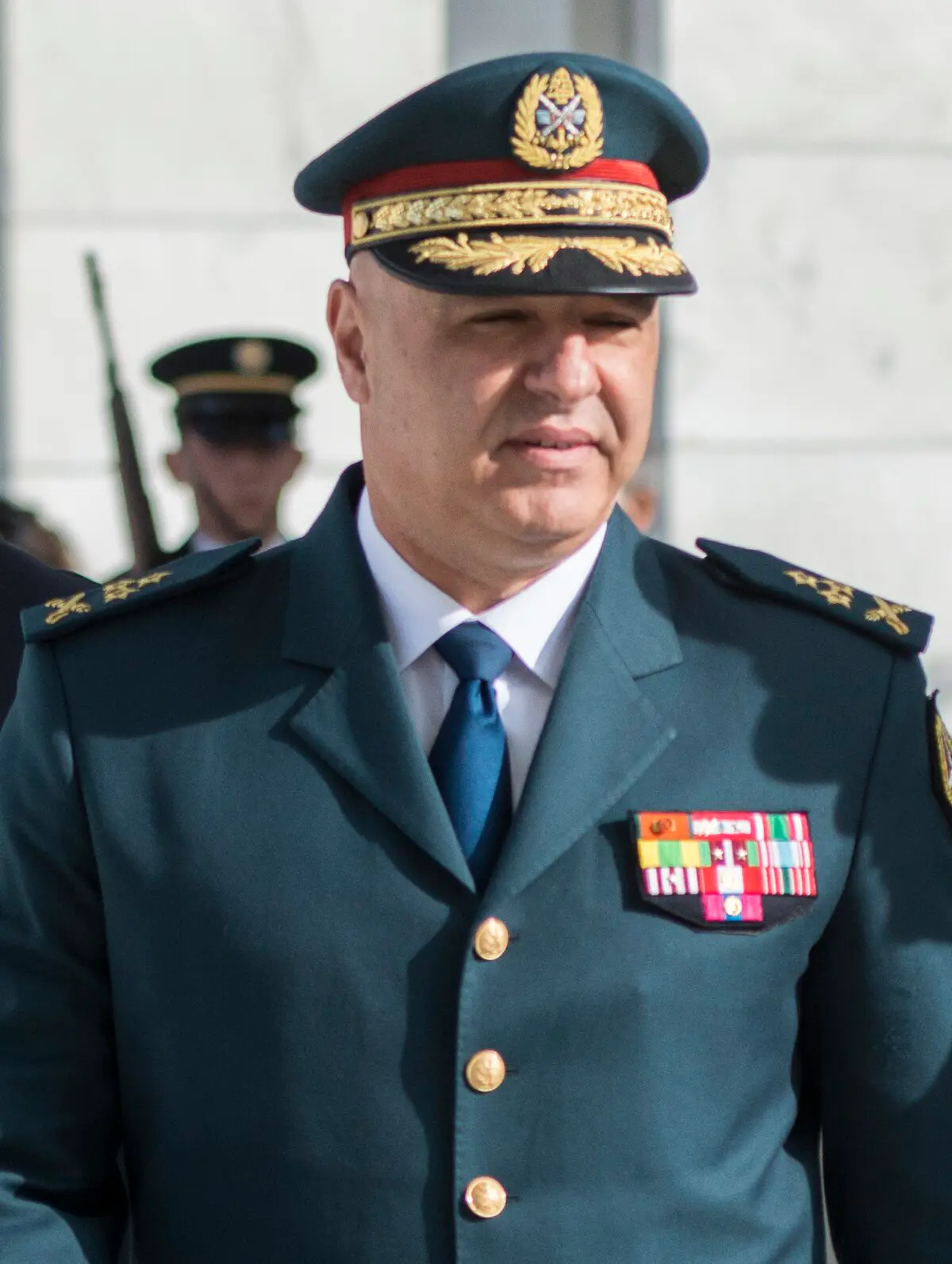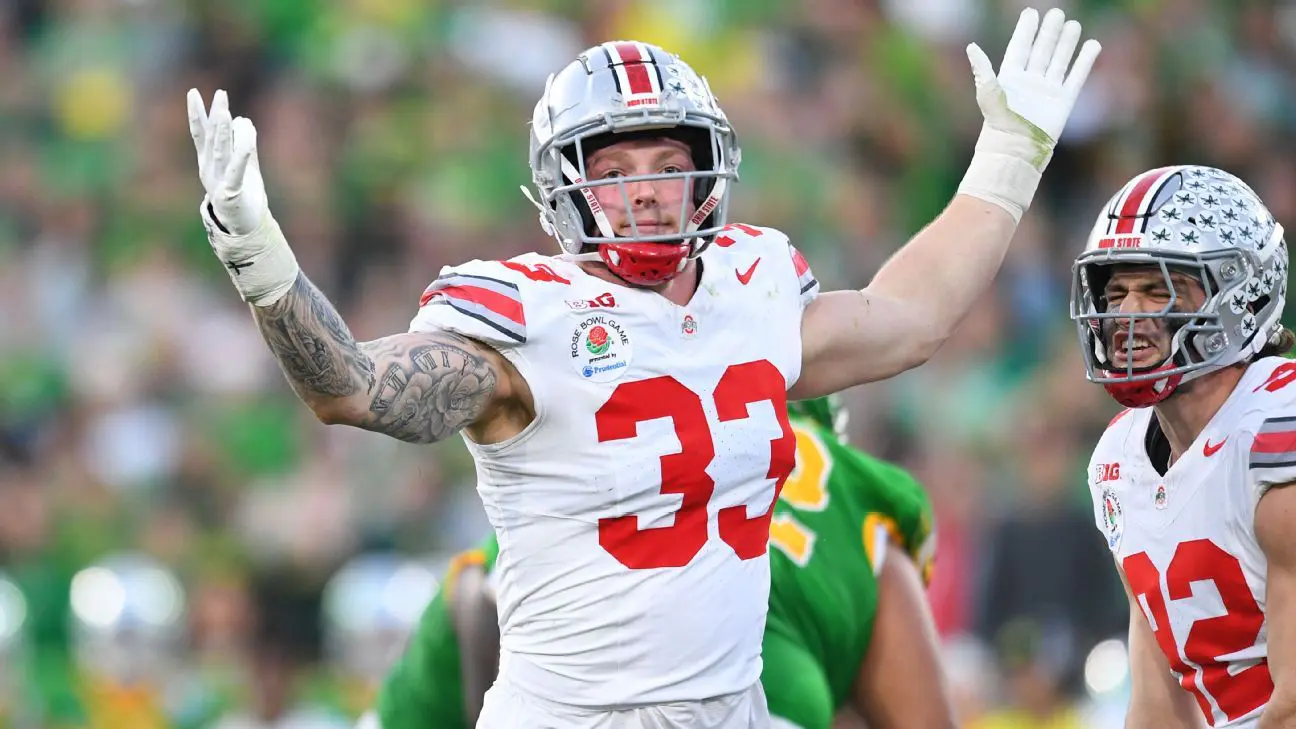Who is Joseph Aoun, the Lebanese army commander elected president?
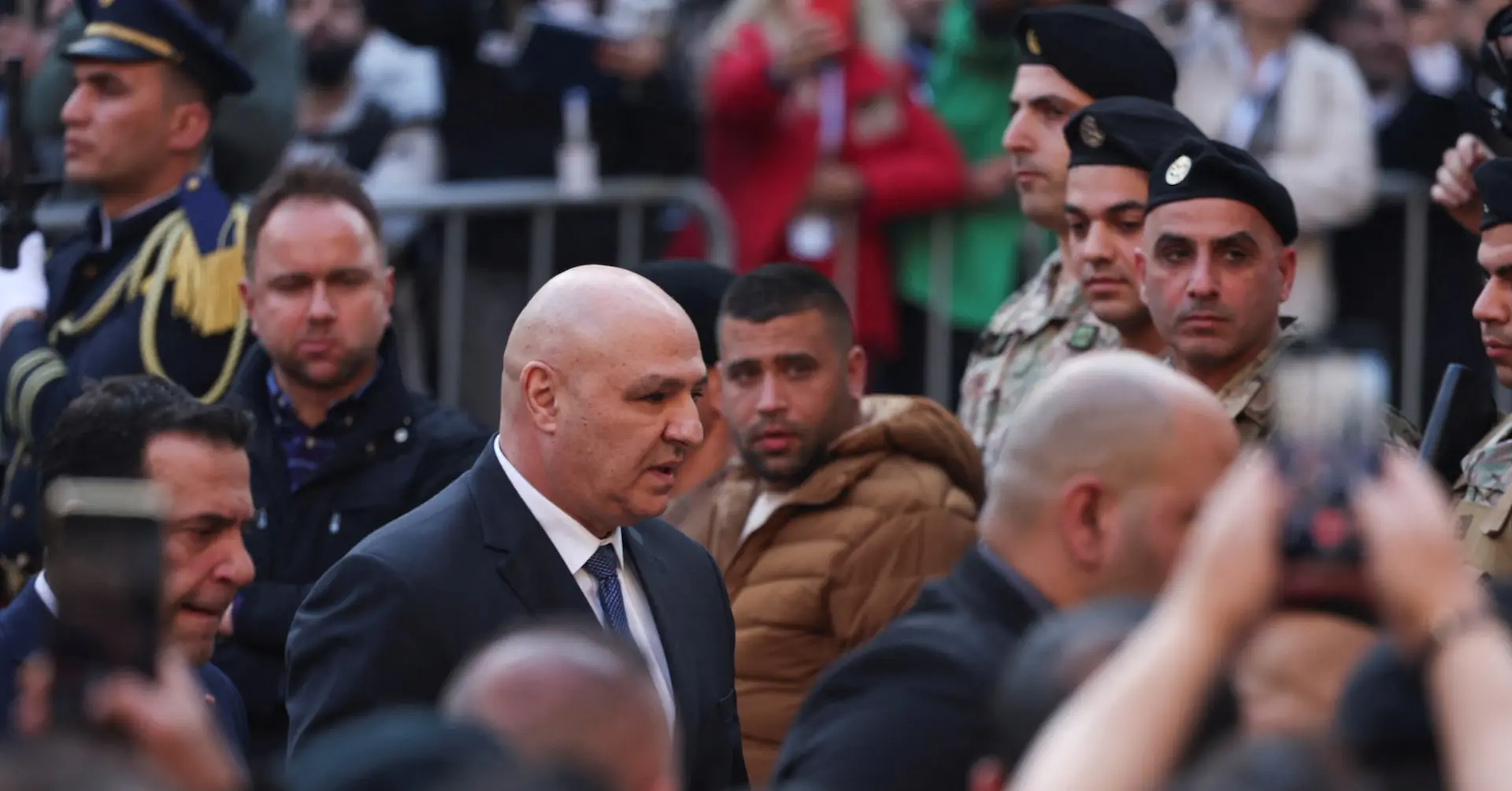
BEIRUT, Jan 9 (Reuters) - General Joseph Aoun, the Lebanese army commander who was elected president on Thursday, kept his military on the sidelines of a recent war between Israel and armed group Hezbollah, ordering it to prioritise civil peace even as troops were killed.
Aoun, a 60-year-old career soldier, became the fifth Lebanese army commander to be elected as president in Lebanon's history, ending a more than two-year vacuum in the post.
Since taking over the army command in 2017, he steered the institution through a national financial crisis that demolished the currency and with it the value of his soldiers' salaries, shaking an institution that has underpinned internal stability since the 1975-90 civil war.
He also kept it out of a more than year-long war between Israel and Hezbollah, the Iran-backed group that had long expressed reservations about Aoun's candidacy. More than 40 Lebanese troops were killed in Israeli strikes over that period but the army did not clash with Israel directly.
Hezbollah has emerged bruised from the conflict, with Israeli strikes killing most of its top commanders and wreaking devastation on the group's bastions.
Aoun's media appearances are extremely rare and he has not stated a view on Hezbollah's arsenal, widely considered to be more powerful than the Lebanese army's.
Aoun has a key role in shoring up a 60-day ceasefire brokered by Washington and Paris in November. The terms require the Lebanese military to deploy into south Lebanon as Israeli troops and Hezbollah withdraw forces.
In meetings with lawmakers in the lead-up to Thursday's election, U.S. and Gulf officials expressed approval of him as the new president, without expressly endorsing him, parliamentarians in attendance told Reuters.
In a rare interview with pro-Hezbollah Lebanese daily Al-Akhbar in 2017, Aoun said he would "limit political interference" in the army.
He did not speak about his candidacy for the presidency in any public forum and did not make the rounds to Lebanon's divided political factions to shore up support, like other candidates typically do before an election.
Aoun was born in Sin el-Fil near Beirut and enrolled in the army in 1983 during Lebanon's civil war. His first assignment was as a platoon commander in the army rangers in 1985 and his training included two infantry officer courses in the United States.
Shortly after his appointment as commander, the army waged an offensive to clear Islamic State militants from an enclave at the Syrian border, drawing praise from the U.S. ambassador at the time who said the military had done an "excellent job".
In becoming president, a post reserved for a Maronite Christian in Lebanon's sectarian system, he will follow in the footsteps of other former army commanders who have assumed the post, including the last head of state Michel Aoun, who is no relation.
In an unusually political statement for an army commander, Aoun criticised ruling politicians over Lebanon's financial collapse in 2021, saying soldiers were going hungry along with the rest of the population and asking politicians "what do you intend to do?"
The United States, which has funnelled more than $2.5 billion in support to the LAF since 2006, stepped in with additional aid, including helping salary support for soldiers.
Aoun described the support of friendly states including Qatar as "a strong support during this phase".
On Aoun's watch, U.S. aid has continued to flow to the army, part of a U.S. policy focused on supporting state institutions to curb the influence of Hezbollah, which Washington deems a terrorist group.
Aoun is married with two children.
Lebanon’s parliament elects army commander Joseph Aoun as president, ending a 2-year deadlock
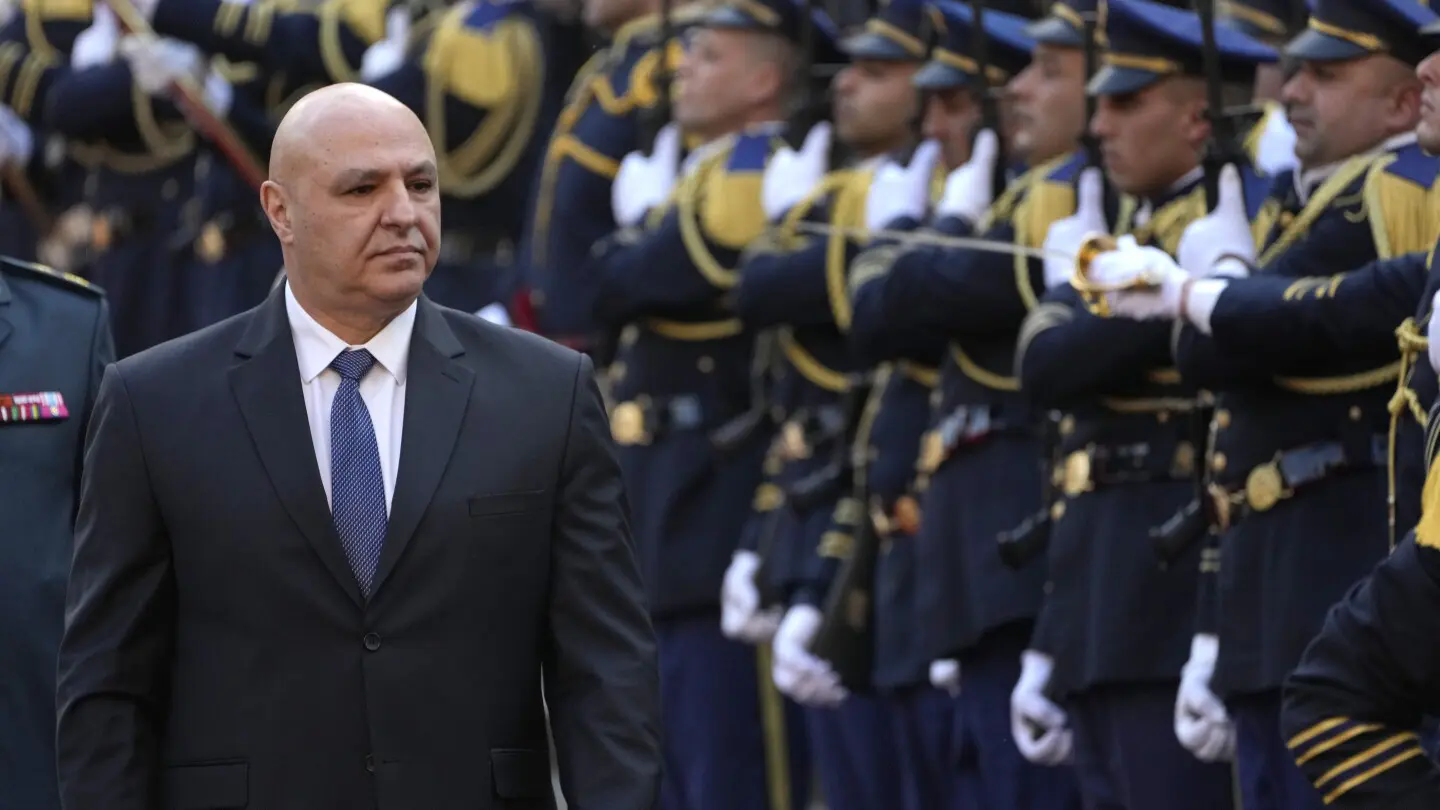
BEIRUT (AP) — Lebanon’s parliament voted Thursday to elect army commander Joseph Aoun as head of state, filling a more than two-year-long presidential vacuum.
The vote came weeks after a tenuous ceasefire agreement halted a 14-month conflict between Israel and the Lebanese militant group Hezbollah and at a time when Lebanon’s leaders are seeking international assistance for reconstruction.
Aoun, no relation to former president Michel Aoun, was widely seen as the preferred candidate of the United States and Saudi Arabia, whose assistance Lebanon will need as it seeks to rebuild.
The session was the legislature’s 13th attempt to elect a successor to Michel Aoun, whose term ended in October 2022.
Hezbollah previously backed another candidate, Suleiman Frangieh, the leader of a small Christian party in northern Lebanon with close ties to former Syrian President Bashar Assad. However, on Wednesday, Frangieh announced he had withdrawn from the race and endorsed Aoun, clearing the way for the army chief.
Randa Slim, a senior fellow at the Washington, D.C.-based Middle East Institute, said that the military and political weakening of Hezbollah following its war with Israel and the fall of its ally, Assad, in Syria, along with international pressure to elect a president paved the way for Thursday’s result.
In a first round of voting Thursday, Aoun received 71 out of 128 votes but fell short of the two-thirds majority needed to win outright. Of the rest, 37 lawmakers cast blank ballots and 14 voted for “sovereignty and the constitution.”
In the second round, he received 99 votes.
The head of Hezbollah’s parliamentary bloc, Mohammed Raad, implied that the group’s legislators had withheld their votes from Aoun in the first round but voted for him in the second in bid to show that Hezbollah - even in its diminished state - cannot be politically sidelined.
“We postponed our vote because we wanted to send a message that just as we are protectors of Lebanon’s sovereignty, we are protectors of the national accord,” Raad said after the election.
Aoun was escorted by a marching band into the parliament building in downtown Beirut where he took the oath of office.
Some streets erupted in celebratory fireworks and gunshots. In Aoun’s hometown of Aichiye in Jezzine province, southern Lebanon, people waved the Lebanese flag and distributed traditional sweets, while local media showed the slaughter of a sheep in celebration.
In a speech to parliament, Aoun pledged to carry out reforms to the judicial system, fight corruption and work to consolidate the state’s right to “monopolise the carrying of weapons,” in an apparent allusion to the arms of Hezbollah.
He also promised to control the country’s borders and “ensure the activation of the security services and to discuss a strategic defense policy that will enable the Lebanese state to remove the Israeli occupation from all Lebanese territories” in southern Lebanon, where the Israeli military has not yet withdrawn from dozens of villages.
He also vowed to reconstruct “what the Israeli army destroyed in the south, east and (Beirut’s southern) suburbs.”
Lebanon’s fractious sectarian power-sharing system is prone to deadlock, both for political and procedural reasons. The small, crisis-battered Mediterranean country has been through several extended presidential vacancies, with the longest lasting nearly 2 1/2 years between May 2014 and October 2016. It ended when former President Michel Aoun was elected.
The president’s role in Lebanon is limited under the power-sharing system in which the president is always a Maronite Christian, the prime minister a Sunni Muslim and the speaker of parliament Shiite.
However, only the president has the power to appoint or remove a prime minister and cabinet. The caretaker government that has run Lebanon for the last two years has reduced powers because it was not appointed by a sitting president.
Joseph Aoun is the fifth former army commander to ascend to Lebanon’s presidency, despite the fact that the country’s constitution prohibits high-ranking public servants, including army commanders, from assuming the presidency during their term or within two years of stepping down.
Under normal circumstances, a presidential candidate in Lebanon can be elected by a two-thirds majority of the 128-member house in the first round of voting, or by a simple majority in a subsequent round.
But because of the constitutional issues surrounding his election, Aoun needed a two-thirds majority in the second round to clinch the election.
Aoun, 60, was appointed army chief in March 2017 and had been set to retire in January 2024, but his term was extended twice during the Israel-Hezbollah conflict. He kept a low profile and avoided media appearances and never formally announced his candidacy.
Other contenders included Jihad Azour, a former finance minister who is now the director of the Middle East and Central Asia Department at the International Monetary Fund; and Elias al-Baysari, the acting head of Lebanon’s General Security agency. Al-Baisary announced Thursday that he was pulling out of the race.
The next government will face daunting challenges apart from implementing the ceasefire agreement that ended the Israel-Hezbollah war and seeking funds for reconstruction.
Lebanon is in its sixth year of an economic and financial crisis that decimated the country’s currency and wiped out the savings of many Lebanese. The cash-strapped state electricity company provides only a few hours of power a day.
The country’s leaders reached a preliminary agreement with the IMF for a bail-out package in 2022 but have made limited progress on reforms required to clinch the deal.
Slim, the analyst, said that “the fact that (Aoun) has the backing of Saudi Arabia, the U.S. and the Europeans give him a big boost in terms of being able to get things done,” Slim said.
But he will still have to “navigate the contradiction that are inherent in domestic Lebanese politics,” she said, including relations with Hezbollah, which is not only a militant group but a political party with a strong base of support.
Aoun “has never had a conflictual relationship with Hezbollah, but he has also never acquiesced to Hezbollah,” Slim said.
The army commander’s relative lack of experience with economic matters means he will likely lean heavily on his advisors.
Lebanese army chief edges towards presidency, Lebanese sources say
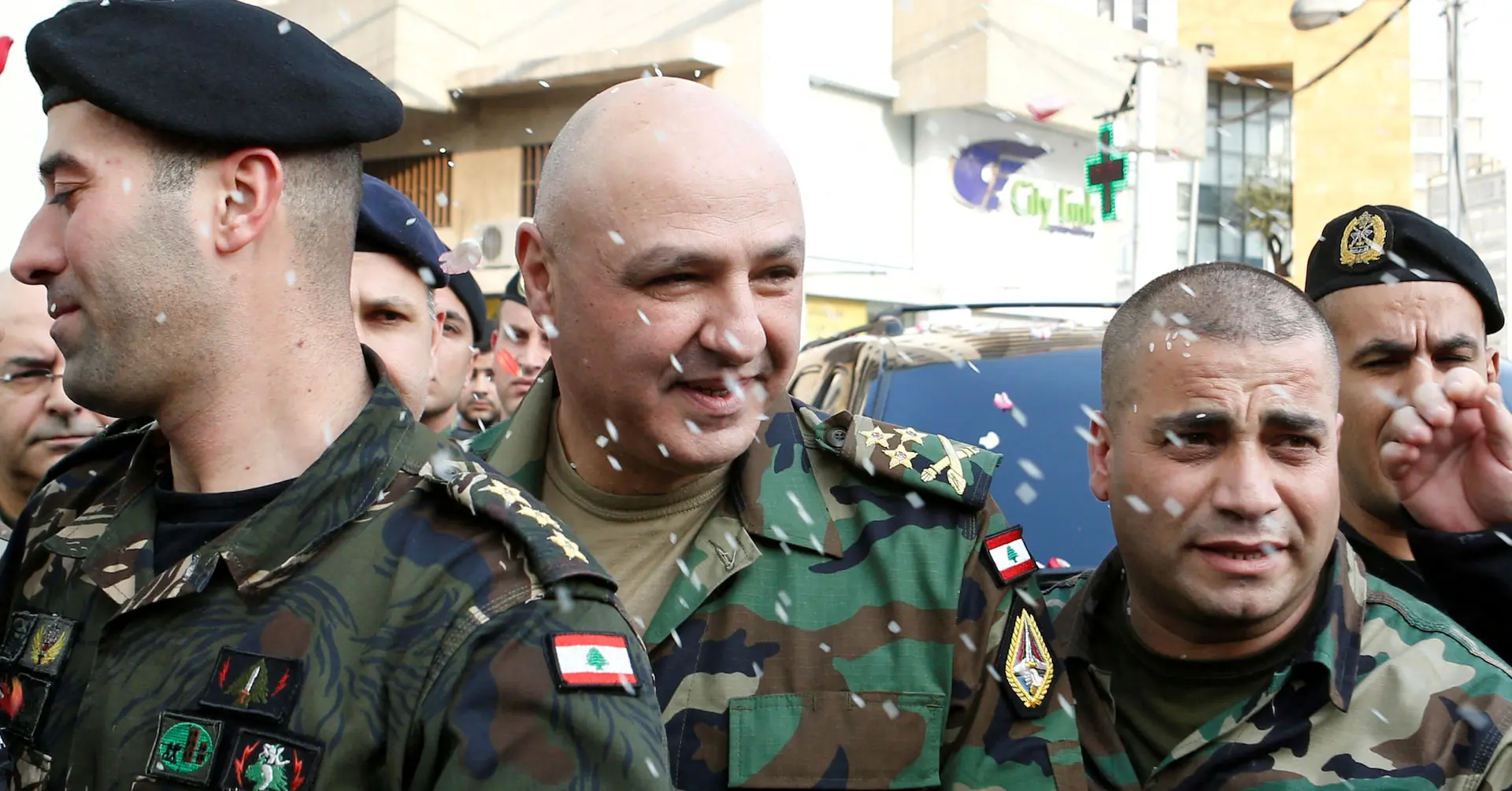
BEIRUT, Jan 8 (Reuters) - Lebanon's parliament looks set to elect army chief Joseph Aoun head of state on Thursday, three senior political sources said, ending a presidential vacuum which has persisted since 2022 and showing the diminished sway of the Iran-backed Hezbollah.
The election marks the first test of Lebanon's power balance since Shi'ite Muslim Hezbollah emerged badly pummelled from last year'swar with Israel, and since its Syrian ally Bashar al-Assad was toppled from power in December.
The post, reserved for a Maronite Christian in the country's sectarian power-sharing system, has been vacant since Michel Aoun's term ended in October 2022. None of the groups in the 128-seat parliament have enough seats to impose their choice, and they have so far been unable to agree on a consensus candidate.
Momentum built behind Joseph Aoun's candidacy on Wednesday, as Hezbollah's preferred candidate - Suleiman Frangieh - withdrew his candidacy and declared his support for the military commander, along with a growing number of other lawmakers.
While Hezbollah and its Shi'ite ally the Amal Movement led by Parliament Speaker Nabih Berri had long expressed reservations about Aoun's candidacy as they stuck by Frangieh, the three sources said enough Shi'ite lawmakers would elect him in order to secure the 86 votes he needs to win.
One of the Lebanese politicians said Western and Arab contacts with Lebanese factions had intensified on Wednesday with the aim of securing the election of Aoun, who Lebanese political sources say enjoys U.S. approval.
French and Saudi envoys met Lebanese politicians in Beirut on Wednesday. Four Lebanese political sources who met the Saudi envoy, Prince Yazid bin Farhan, last week said he spelt out preferred qualifications which signal Saudi support for Aoun.
Saudi Arabia was once a big player in Lebanon, vying with Tehran for influence, before seeing its role eclipsed by Iran and the heavily armed Hezbollah, which is listed as a terrorist group by Washington and its Gulf Arab allies.
Aoun, 60, has been commander of the U.S.-backed Lebanese army since 2017. On his watch, U.S. aid continued to flow to the army, part of a long-standing U.S. policy focused on supporting state institutions to curb Hezbollah's influence.
A candidate requires 86 votes to win in a first-round vote, or 65 in a second round. But Berri has said that Aoun, as a still-serving state employee, would still need 86 votes because his election requires a constitutional amendment.
George Adwan, a member of the Lebanese Forces party, a Christian faction which staunchly opposes Hezbollah and decided to vote for Aoun, said his election would "open the door to a new phase".
Aoun has a key role in shoring up the ceasefire brokered by Washington and Paris in November. The terms require the Lebanese military to deploy into south Lebanon as Israeli troops and Hezbollah withdraw forces.
Still reeling from a financial collapse in 2019, Lebanon desperately needs foreign aid to rebuild from the war.
Much of the damage is in Shi'ite majority areas.
Hezbollah, its supply line to Iran severed by Assad's ousting, has urged Arab and international support for Lebanon.
The vote takes place against a backdrop of historic change in the wider Middle East, where the Assad-led Syrian state exercised sway over Lebanon for decades, both directly and through allies such as Hezbollah.
Hezbollah's support was vital to propelling Michel Aoun to the presidency in 2016, as the group and factions which supported its possession of a powerful arsenal were in the ascendant.
A State Department spokesperson said it was "up to Lebanon to choose its next president, not the United States or any external actor".
"We have been consistent in our efforts to press Lebanon to elect a new president, which we see as important to strengthening Lebanon’s political institutions," the spokesperson said.
Saudi Minister Faisal bin Farhan said last October that Riyadh had never fully disengaged from Lebanon and that outside countries should not tell Lebanese what to do.
French Foreign Minister Jean-Noel Barrot expressed hope in comments to France Inter radio, saying the election was "a prerequisite for the continuation of this dynamic of peace" and also for Lebanon's economic and social recovery.
Other candidates in focus include Jihad Azour, a senior International Monetary Fund official who formerly served as finance minister, and Major-General Elias al-Baysari - head of General Security, a state security agency.
